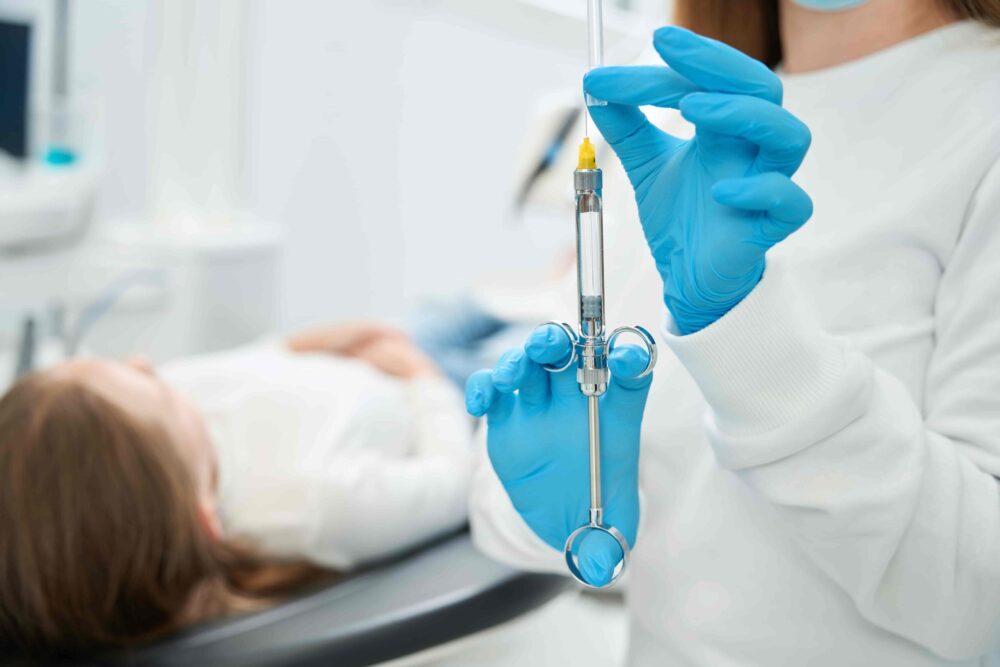💉 What Most People Call “Novocaine” Isn’t Actually Novocaine
When you visit the dentist for a filling, extraction, or deep cleaning, your dentist will likely use a local anesthetic to keep you numb and comfortable. Many people call this “Novocaine,” but true Novocaine (procaine) is rarely used today. Instead, modern anesthetics such as lidocaine, articaine, and mepivacaine are preferred for their effectiveness and safety .
These anesthetics are often combined with a small amount of epinephrine—a key ingredient that improves how the anesthetic works.
⚡ What Is Epinephrine?
Epinephrine, also known as adrenaline, is a natural hormone your body produces in response to stress, excitement, or fear. In dentistry, it’s added to anesthetic solutions in very small amounts to enhance both the effectiveness and duration of the anesthesia .
✅ Why Do Dentists Use Epinephrine in Anesthesia?
1. It Makes the Numbing Last Longer
Epinephrine causes nearby blood vessels to constrict, which keeps the anesthetic localized. This means:
- Numbness lasts throughout the entire procedure
- Less risk of needing additional injections
2. It Reduces Bleeding
Constriction of blood vessels leads to less bleeding, making it easier for your dentist to see and work clearly—especially during oral surgeries or deep gum cleanings.
3. It Reduces the Overall Dose of Anesthetic Needed
With epinephrine, a smaller amount of anesthetic is often enough to achieve full numbing, which increases safety and reduces potential side effects .
🤔 Are There Any Side Effects?
Most patients tolerate anesthetics with epinephrine very well. However, some may experience:
- A temporary increase in heart rate
- Slight shakiness or “jitters”
- A feeling of anxiousness shortly after the injection
These effects are short-lived and usually harmless, but we always recommend letting us know if you:
- Have a history of heart conditions or high blood pressure
- Are pregnant or nursing
- Have experienced negative reactions to anesthesia in the past
At Pecan Tree Family Dentistry, we offer epinephrine-free anesthetics when needed for patients with specific health concerns or sensitivities .
🏡 Your Safety and Comfort Come First
Whether you’re here for a routine filling or a more involved procedure, we always explain the materials we use and ensure you’re fully comfortable before, during, and after treatment. If you ever have questions about anesthesia or alternatives, we’re happy to walk you through your options.
📞 Call us at (972) 562-0767 or contact us online to schedule your next visit.



